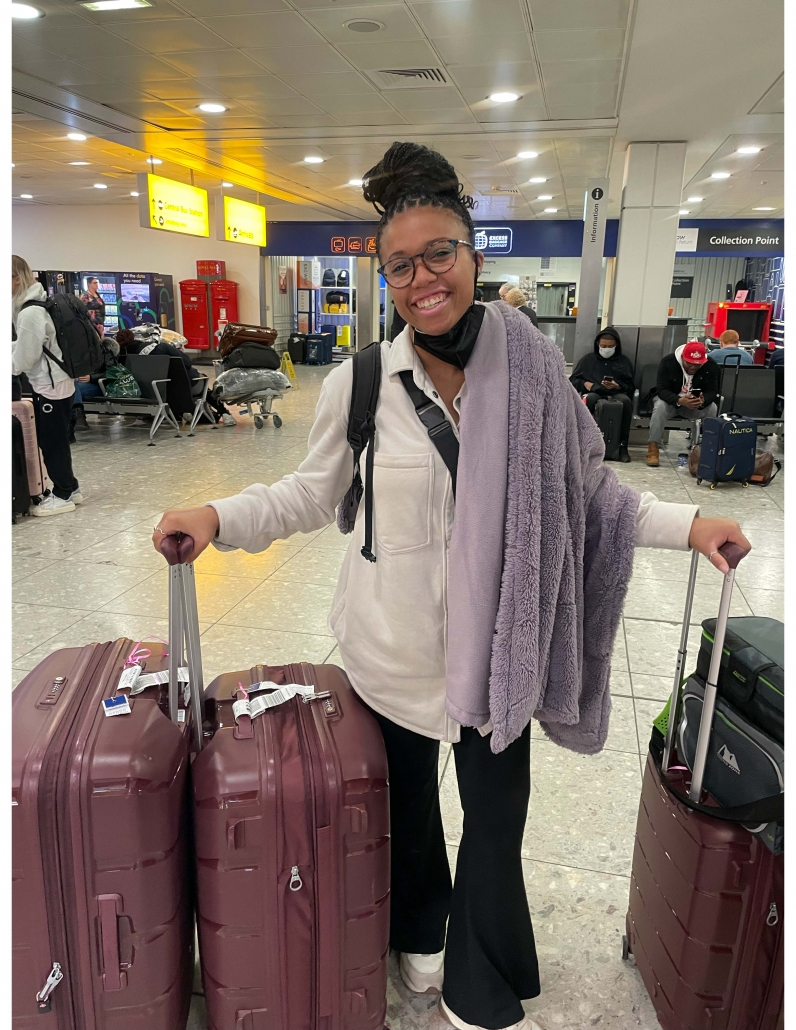Tips for Studying Abroad
Studying abroad is an adjustment for anyone who chooses to do it. It doesn’t matter if you are very independent, live far from home already, or aren’t close to your family, when you study abroad, you are leaving familiarity and comfort and have to adjust to a new environment. Studying abroad can seem even scarier if you are close to your family and find comfort in being in a familiar environment. I identify with the latter, but I chose to study abroad. Now that my trip is coming to an end, I have some pieces of advice I would like to share with others.
Take The Leap
I am an only child and I am very close with my family and friends. I value quality time with my loved ones and don’t often travel far away from them for long periods of time like this. I have only been out of the country once and it was on a trip with my friends and family. In addition, my college is only two and a half hours away from my house. Whether it was on purpose or on accident, I have remained close to home throughout my life thus far. However, when the time came, I wanted to study abroad. I strategically chose London because of the classes offered, the internship component, and the location. Taking this leap and being away from my family and friends for four months was one of the best decisions I made. While it was scary at some points, I learned so much about myself through this experience. Even though I am close to my family and enjoy being home, I am an independent person in many ways but, going abroad showed me just how strong I am as a person. I shocked myself with how well I adjusted to London and being away from home. I was able to fully immerse myself in the experience and enjoy my time here. If you are hesitant, know that everyone has fears or worries about the abroad experience. However, it is a once-in-a-lifetime experience. If you are unsure about going abroad, learn from my example. You are probably stronger than you think. Don’t let your fear consume you and convince you not to embark on this adventure.
Do Your Research
Research all the locations your school offers for study abroad. You want to make an informed decision before choosing to study abroad. In addition, plan a meeting with your academic advisor. This will allow you to ensure that you will stay on track in terms of academic credit while abroad. Researching the specific classes that a program offers as well as their course equivalents is very helpful in preparing your academics for a semester abroad and can have an effect on your decision. In addition, your advisor can provide insight into whether or not your progamme offers special experiences like doing an internship. Remember to be organised and comprehensive when applying to study abroad. No matter what school you attend, this will help ensure that you are accepted into the programme. Each university’s process is different. For instance, my college Elon University does not require an interview as a part of the process but it might be different for you. To gain as much knowledge on studying abroad and the process, make sure to visit the study abroad office on your college campus.
Once you have picked a location, do your research on the place before departing. This will help you gauge the expenses needed, travel in the area, what to pack, etc. It will also help you to be aware of the cultural differences between the United States and your chosen destination. If you know what to expect before going abroad, the transition will be smoother. In addition, it shows that you are committed to getting to know another culture.
Save Money
Now that I have convinced you to go abroad, let’s discuss logistics. You should start saving months in advance of your trip. You will most likely need more money than you expect, especially if you are studying abroad for an entire semester. You will have to pay for groceries, possibly laundry, weekend travel, dinner out, souvenirs, and more. It is never too early to start saving for studying abroad, trust me. Moreover, apply for scholarships well in advance. The deadline for submission will pass before you know it. In addition, if you don’t have a credit card, get one. Most debit cards will charge an international fee for all transactions abroad. To avoid spending unnecessary money, apply for a credit card that does not charge international fees. Once you are abroad, remain conscious of your money. Yes, money will come back, but remember that the money you saved has to last the entire trip. The first couple of weeks is the worst. You are adjusting and excited. In my first three weeks in London, I ran through more money than I realised. So, pay attention from day one. One thing that helped me was paying off my credit card every week. Even though the bill was due every month, doing this allowed me to keep track of how much money I had left over. Even though you want to keep track of your money, don’t worry about saving while abroad. Most likely, you will never have an experience like this again. You do not want to leave with any regrets. Take weekend trips, go out to dinner, and buy gifts, but, just be conscious while doing it.
Packing
Don’t overpack for abroad but I suggest taking three suitcases if you can. I brought three suitcases to London and I do not regret it. At first, I was hesitant because most people only take two. However, I have bought a lot of stuff while abroad. Many of my friends are having to purchase another bag abroad, donate some of their items, or both, to get all of their belongings back to the United States. In addition, pack enough toiletries for the entire trip. Half of one of my suitcases was filled with toiletries to last me the entire trip. It was nice to not have to buy toiletries while abroad. In addition, I am particular about my products. Furthermore, all the space I took up with toiletries when departing is now free space for the items I bought while abroad.
Conclusion
Other quick tips before going abroad are to have your family visit if you can, coordinate trips to see friends who are studying abroad in another country than you, don’t forget to explore where you are studying abroad, and the list goes on and on. Overall, have fun while studying abroad and soak up all you can. After graduation, you will probably not have the opportunity to study abroad like this. Take advantage of the opportunities at your disposal before they are gone.






